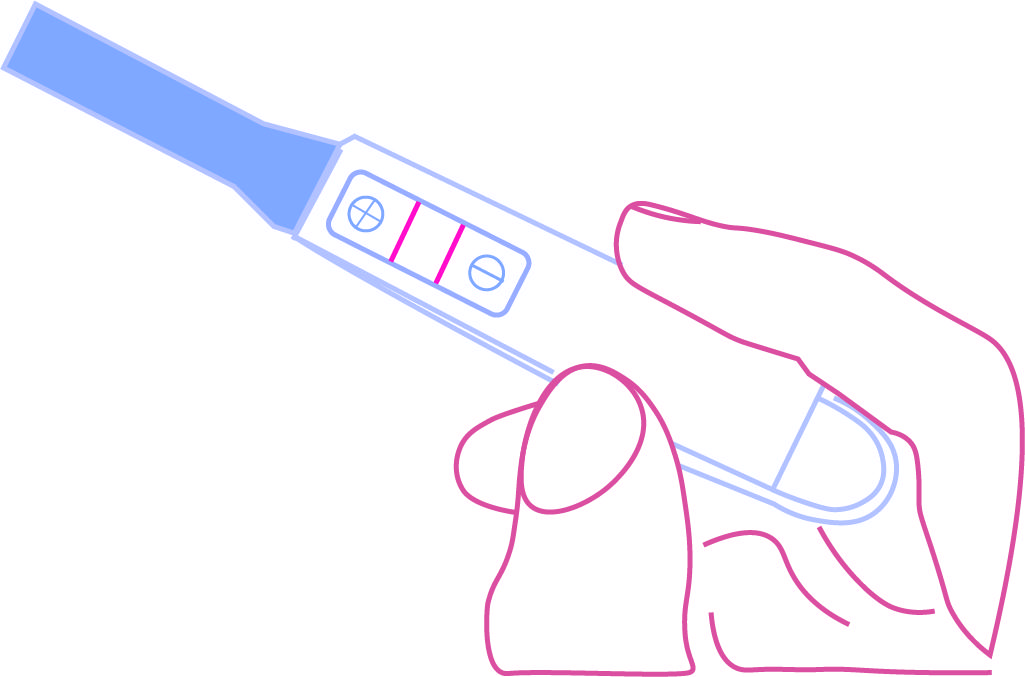By Maggie Macintosh
Recent Ryerson graduate Shannon O’Neil*, who raised her six-month-old child while completing her undergrad, said she felt alone as a student mom.
O’Neil was pregnant at another Ontario university. When she transferred to Ryerson in 2013 after her baby was born, she didn’t know of any resources for pregnant students or moms offered by the university.
“I think [Ryerson] should be promoting whatever they have,” O’Neil said. “It’s not really something [people] talk about, which makes it so tricky. I do know people who’ve had abortions … there should be a place where they can talk about how difficult it was for them or if they’re going through some problems after.”
Ryerson has supports and services for pregnant students on campus, but those services are often housed under larger groups and centres on campus, making them less visible.
The City of Toronto reported a total of 5,423 pregnancies from the 20-24 age group from 2013, the most recent data available. Between ages 15-19, 1,430 pregnancies were reported. Both age ranges fit into the average age of an undergraduate student.
O’Neil, now in her mid-20s, said universities should find better ways of promoting their services for pregnant students, as well as create spaces for students who’ve had abortions to talk about their experiences or for student parents to discuss their challenges.
According to O’Neil, there should also be an on-campus service that pregnant students who want to carry through their pregnancy can access to learn about how to prepare.
Since O’Neil graduated, the university announced the introduction of a nursing room in the Daphne Cockwell Health Sciences Complex, which is expected to open in fall 2018.
“There should be a way to promote [services]. It’s a sensitive topic so it’s difficult to just have a poster in the middle of a corridor that you’re walking around with tons of people around.”
Below are services available on campus for pregnant students and a breakdown of what they offer:
RSU’s Centre for Women and Trans People
The Centre for Women and Trans People—one of the Ryerson Students’ Union’s (RSU) six equity centres—has connections with counsellors and can provide affiliated services for students determining next steps for their pregnancies.
Corey Scott, Equity and Campaigns organizer for the RSU, said there’s a “shortage” when it comes to on-campus conversations about pregnancy services for students, as well as research into what students need.
Since the beginning of this school year, students can access free trying-to-conceive strips and pregnancy tests on the second floor of the Student Campus Centre.
Drop-ins to the Centre for Women and Trans People are welcome, although Scott said it’s not staffed 24-7 so students can also contact the centre via email.
When a student drops in with questions about a pregnancy, Scott said volunteers can do research and refer students to on or off-campus counsellors and medical professionals.
Scott said they’re also currently looking into the possibility of providing Plan B to students next academic year.
Ryerson Medical Centre
Allan MacDonald, Ryerson’s Director of Student Health and Wellness, said the first logical stop for a student looking to access pregnancy services at Ryerson would be the Medical Centre, the on-campus doctor’s office at 181 Kerr Hall West.
He said that physicians can be the first person a pregnant student sees who then provides them with a list of other services geared towards their needs. Working on a case-by-case basis, a Ryerson physician can connect them back to their family doctor, refer them to an obstetrician or give them a list of nearby abortion clinics.
MacDonald said students normally have to wait two to three days to get an appointment with a family physician who can run a urine pregnancy test, covered under OHIP. If a student is pregnant, a doctor at the clinic will run a blood test.
MacDonald said all the downtown abortion clinics are self-referral services.
“We don’t actually make the referral,” he said. “Students are provided with a list of resources that they then sort out what they’re going to do next on their own.”
Ryerson’s Pregnancy Care Group (RPCG)
Erika Hood, a fourth-year nursing student, started the group in September because she felt there weren’t enough services for pregnant students at Ryerson.
The RPCG is affiliated with the Pregnancy Care Centre, a Christian non-profit that consults with their options and connects them to support agencies and religious counselling. The group launched in September and has since been challenged for its neutral stance on abortions because of its affiliation with a faith-based organization.
Using their funding from the Pregnancy Care Centre, the RPCG can provide students with free pregnancy tests.
Hood said they’ve corresponded with students, but have yet to hold a consultation.
Consultations will be held at the RPCG’s designated confidential location on campus. There, Hood said they’ll “neutrally” discuss a pregnant student’s three options: abortion, adoption and parenting.
The RPCG is now working on a master list of on-campus student groups and services they want to connect with.
“What we’re trying to do at Ryerson is connect with all the services on campus: financial services, day care, all those kind of things … so we can help connect students with them,” she said.
*Name has been changed to protect identity.










Leave a Reply